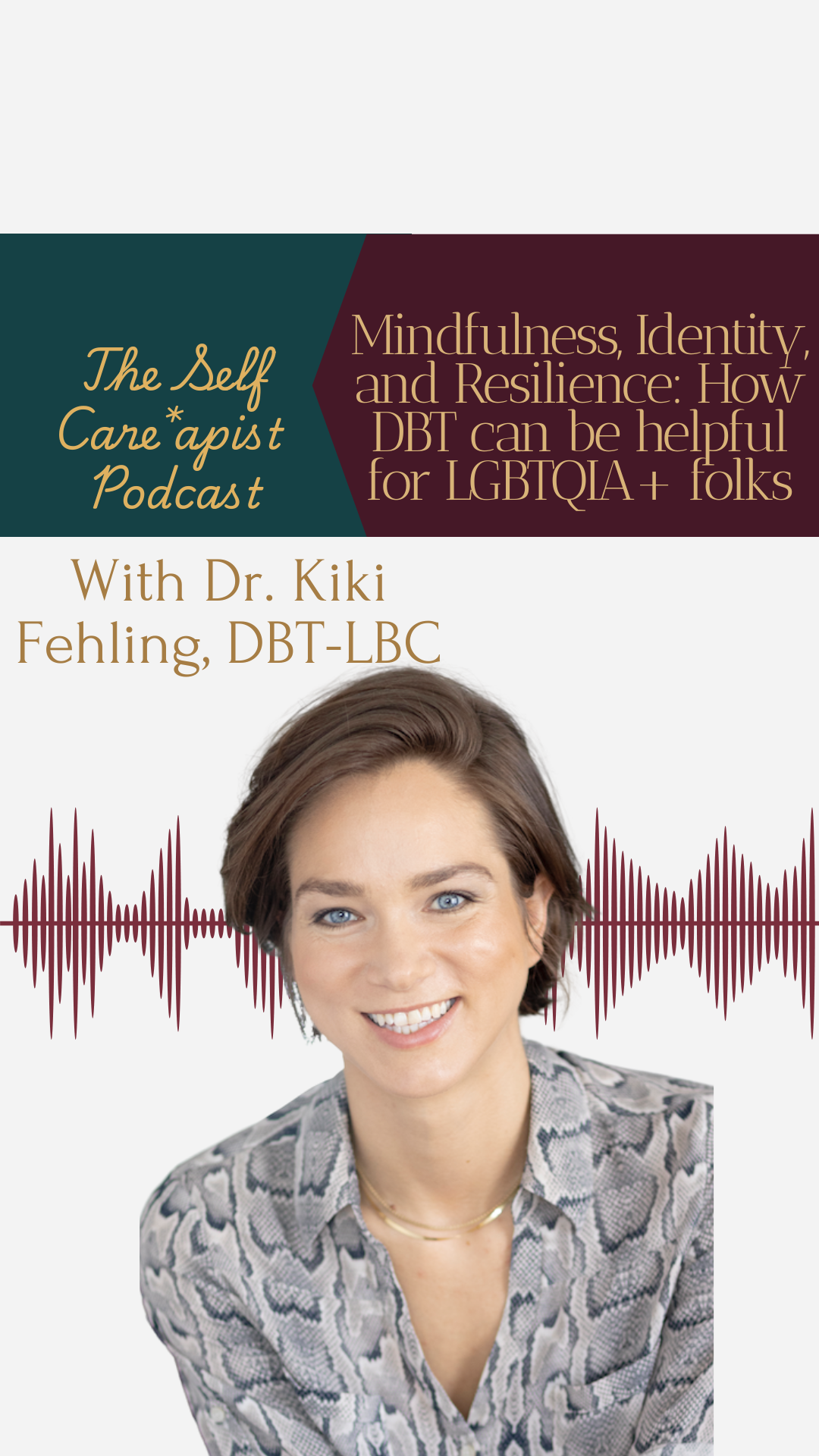What does it mean to build a life worth living, especially when the world wasn’t built with you in mind? Dialectical Behavior Therapy (DBT) offers an affirming, flexible framework that can be life-changing for LGBTQIA+ folks navigating chronic stress, discrimination, and emotional overwhelm.
In this episode, I sat down with Dr. Kiki Fehling, a DBT expert and author, to explore how DBT supports healing through mindfulness, identity exploration, and resilience-building. Dr. Fehling offers compassionate insight into how DBT goes beyond coping, helping LQBTQIA+ clients reconnect with self-worth and agency.
DBT 101—More Than Skills
While many know DBT for its skills groups, Dr. Fehling breaks down the four key components of full-model DBT:
- Individual therapy
- Skills group
- Phone coaching
- Therapist consultation teams
Each piece supports clients in managing intense emotions and impulsive behaviors, and helps therapists stay grounded and effective—especially when working with high-risk concerns like suicidality, trauma, or self-harm.
DBT Through a LGBTQIA+ affirming Lens
LGBTQIA+ individuals often face unique stressors—external discrimination, internalized stigma, and cultural invalidation. DBT speaks to this through its core philosophy of dialectics: the idea that two things can be true at once. For queer clients, this might sound like:
“I’ve been deeply hurt by this world and I deserve to find peace and joy within it.”
DBT doesn’t minimize pain. Instead, it helps clients tolerate distress, challenge judgmental thinking, and move toward a more affirming and connected life.
Mindfulness and Non-Judgment
Mindfulness in DBT isn’t limited to meditation. It’s about tuning into your present moment experience—your senses, your body, your emotions—without judgment. For “queer folks who’ve internalized shame or rejection”, according to Dr. Fehling, this skill helps reconnect them to their authentic desires, sensations, and identity.
DBT also encourages clients to “describe, not judge.” This subtle shift from “that’s bad” to “that feels unfamiliar to me” can soften self-criticism and widen the window for curiosity, self-understanding, and compassion.
Life Worth Living & Joy
A standout DBT concept is the “life worth living” goal. It invites clients to define their own version of a fulfilling life—especially powerful for those who’ve been told their identity doesn’t “fit.” Whether that’s chosen family, non-traditional partnerships, or creative self-expression, DBT centers the client’s values, not societal norms.
“Whatever you envision, it’s valid—and we’ll help you get there.”
Tools That Stick: Opposite Action & Coping Kits
Dr. Fehling shared actionable tools clinicians (and clients!) can use:
- Opposite Action: Move through stuck emotions by doing the opposite of what the urge tells you.
- Cope Ahead: Practice skills before high-stress situations arise.
- Distress Tolerance Kits: Create go-to resources for when emotional overwhelm hits.
- Self-Validation: A daily practice that says, “It makes sense I feel this way.”
For the Overthinkers and Overdoers
If you’re a perfectionist or problem-solver, like many of my clients, DBT can help. It invites high-achievers to balance action with presence, through concepts like Wise Mind and Skillful Means—integrating being and doing so that performance doesn’t crowd out self-connection.
For Clinicians Ready to Learn More
Dr. Fehling encourages clinicians to dive into DBT gradually: start with the skills manual, seek out inclusive resources, and consider how dialectics, mindfulness, and community support can change your practice—and your clients’ lives.
Listen here for the full episode, or download it wherever you get your podcasts!

+ show Comments
- Hide Comments
add a comment